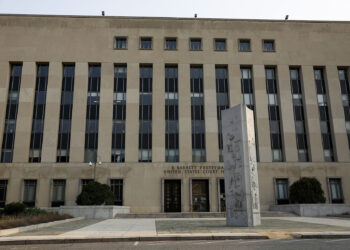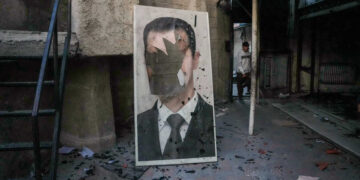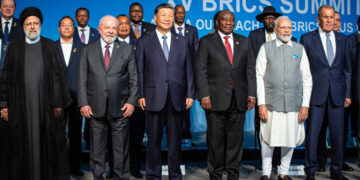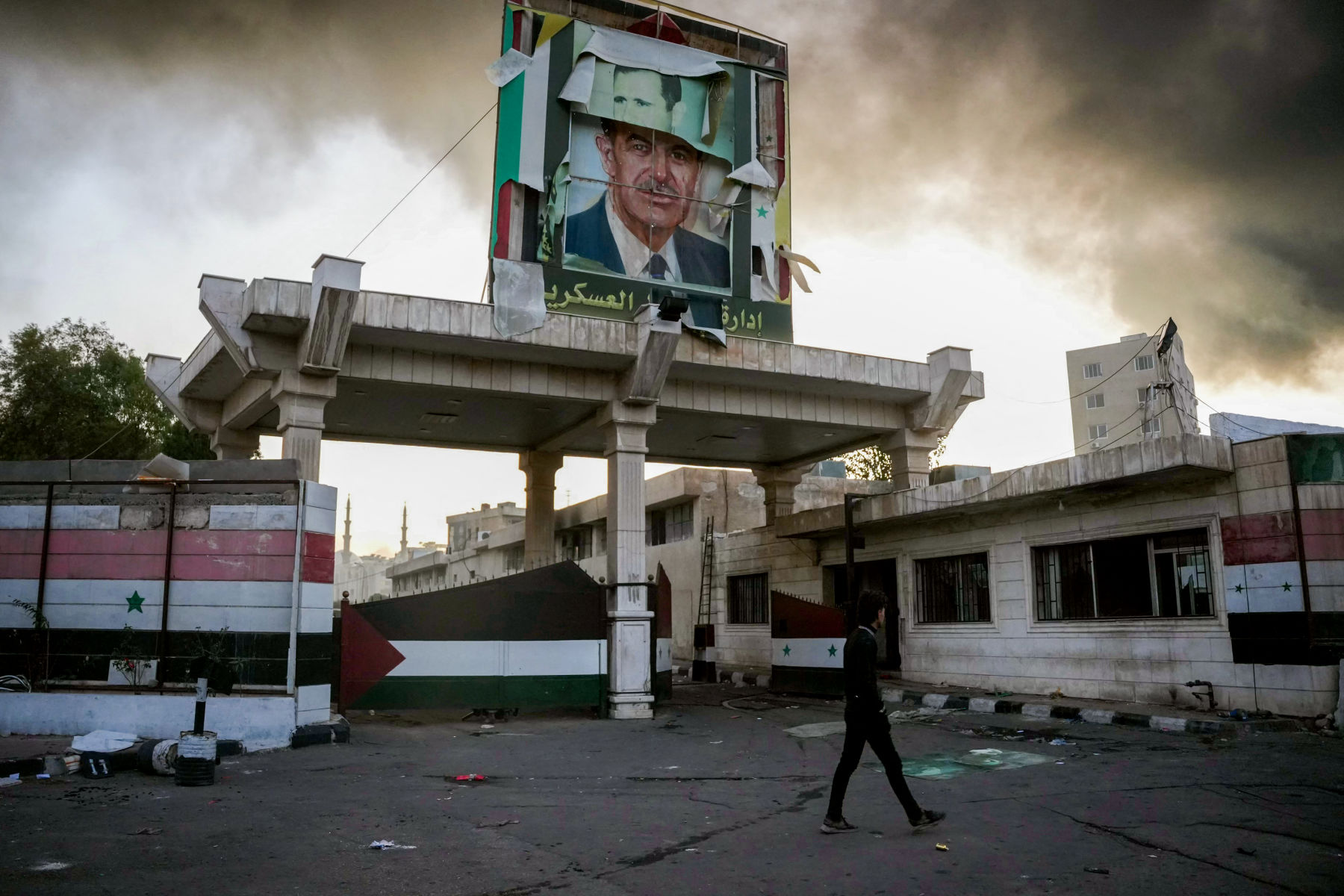Kourosh Ziabari is an award-winning journalist from Iran and a correspondent for Asia Times.
Hard-pressed to remedy a long list of economic challenges incapacitating Iran, President Ebrahim Raisi's government is instead doubling down on repression, even after the "Woman, Life, Freedom" protests have tapered off following a fierce crackdown. Iranian authorities are putting even more pressure on civil society and further restrictions on women and young Iranians—measures that come off as a way to distract from the severity of inflation, currency devaluation and poverty saddling a country of 85 million. The government is currently considering a draconian new bill on the compulsory hijab, with much longer prison sentences for women who refuse to wear it.
While many Iranians are looking for ways to restore some normalcy in their daily lives in the aftermath of the protests that erupted last September following the death of 22-year-old Mahsa Amini in the custody of the so-called morality police, who accused her of violating mandatory hijab rules, Raisi's hard-line administration is retaliating against anyone who ventured to challenge its rule. Students, in particular, are caught in the crosshairs, as university campuses have become a more frequent target.
"The government knows that university campuses are an important locus of dissent and are thus directing much of their attention toward students and student organizing," Sahar Razavi, an assistant professor of political science at California State University, Sacramento, told Democracy in Exile. "They also remember the events of July 1999, which holds a prominent place in Iran's contemporary political memory," referring to the widespread student protests that broke out after a popular reformist newspaper, Salam, was shut down by the judiciary.
"They know the influence that students have in shaping social norms," Razavi said. "Given that the hijab is one important pillar of the state's control of civil society and the public sphere, the point where these two meet is a place we would expect the government to focus their efforts, as they see their control weakening especially in Tehran, where many young women are openly refusing to observe hijab in public."
"The government knows that university campuses are an important locus of dissent and are thus directing much of their attention toward students and student organizing."
- Sahar Razavi
"Disciplinary committees" have been set up by the government at several universities, tasked with enforcing the hijab on campus, identifying students involved in political activism, and thwarting any activities that involve male and female students mingling, which the authorities deem un-Islamic. At Al-Zahra University in Tehran alone, more than 500 students have reportedly received summonses to appear before its disciplinary committee. These committees have also expanded the scope of their policing to include surveillance of students' social media.
Universities were an epicenter of anti-government protests in the months-long uprising that began last fall. The authorities resorted to brute force to quell the students' revolt—most notoriously at Tehran's prestigious Sharif University of Technology, which was raided by the plainclothes Basiji militia, along with riot police and security forces. "We thought they were going to kill us," one engineering student told The New York Times. "It felt like we were in a war zone and the enemy was hunting us down looking for victims to slay."
Raisi's government is now making clear it will not tolerate students ditching headscarves on university campuses, a physical barometer of the stability of Iran's government. At Tehran University of Art, administrators announced in June that a black uniform headscarf known as "maqna'e" would be mandatory for female students. In reaction to the arbitrary measure, students staged a sit-in. Campus security responded by beating students and arresting dozens of them. Students were also prevented from using restrooms on campus, and the water supply was cut temporarily. The heavy-handed security presence fueled tension and unrest on campus, but it failed to avert a student strike in the middle of exam season.
Student associations at several leading universities, including Tehran University, Tarbiat Modares University and Ferdowsi University of Mashhad, released statements of solidarity with the art students, decrying the gratuitous state violence on a campus built to stimulate artistic creativity and cultural innovation. Students at Allameh Tabataba'i University in Tehran, a public university specializing in humanities and social sciences, noted in a statement: "We won't tolerate the smallest scar on the face of students and universities, and resist every form of repression till the last moment."
In a meeting between top officials at Tehran University of Art and the representatives of striking students, reported by local student groups on the messaging app Telegram, the official in charge of campus security is said to have threatened to shoot the students with a DShK, a Soviet-era heavy machine gun, if they didn't stop protesting.
Raisi's government is now making clear it will not tolerate students ditching headscarves on university campuses.
- Kourosh Ziabari
Raisi's government has lashed out against students at several other universities that have stiffened their rules on the hijab, which has led to more physical confrontations between security guards and students. Videos on social media show guards harassing and insulting female students for not properly wearing the hijab, and even beating them in some instances.
In May, at Tehran University's College of Fine Arts, security guards and plainclothes officers stormed its School of Performing Arts and Music after being tipped off about students rehearsing music while not wearing their headscarves, as local media reported. In the ensuing standoff, the guards beat the students and broke several of their instruments. Students later gathered on campus and chanted "Woman, Life, Freedom!" and "Students will die, but will not accept humiliation!" Although the raid sparked condemnation nationally, the university leadership never issued an apology or offered any explanation.
Since the beginning of the nationwide protests, more than 750 students have been arrested and hundreds of others suspended or ejected from university housing as punishment for their activism. Abdollah Motamedi, the president of Allameh Tabataba'i University, recently announced the launch of a "guidance council" that is solely responsible for promoting compulsory hijab across the different faculties of the university, which currently enrolls 13,500 students. He said the breach of hijab codes is steeped in the programs of "hostile espionage networks" and that the university, following a directive from the Ministry of Science, Research and Technology, will refuse to provide educational services to students who don't follow the hijab law.
At Al-Zahra University, an all-female university in Tehran dominated by a conservative faculty, 35 students have either been suspended or expelled from university-affiliated housing over their defiance of the compulsory hijab. Tehran-based journalist Nazila Maroofian wrote in a thread of tweets in May that university officials have relegated themselves to the position of "prison guards," instead of catering to the needs of the student body and protecting the independence of the institution. She wrote that guards have been monitoring classes to identify students who should be disciplined, including for refusing to wear the hijab while attending lectures. In early July, Maroofian was arrested on charges of "propaganda against the state."
In June, a group of Tehran University students were kicked out of their dorms for apparently flouting the hijab regulations. The Islamic Azad University, the largest private university system in Iran, has ordered professors to dismiss female students who refuse to wear a headscarf in class. The professors themselves will be held accountable if they refuse to warn the "offending" students.
Even after all the upheaval of the protests, whose one-year anniversary is approaching next month, Raisi's domestic agenda is still centered around repression and spurning popular demands for civil liberties. But it was his government's excesses that resulted in last year's implosion in the streets, and its ongoing crackdowns can only contain a restive population's simmering rage for so long.





































